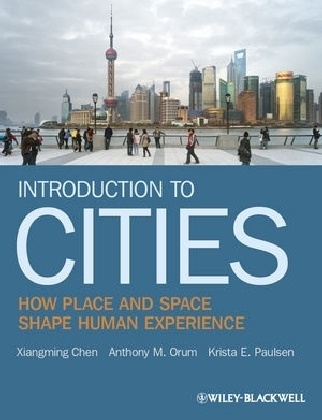Read more
"A complete introduction to the history, evolution, and future of the modern city, this book covers a wide range of theory, including the significance of space and place, to provide a balanced account of why cities are an essential part of the global human experience"--
List of contents
Introduction 1
Part I The foundations 5
1 Cities as places and spaces 6
2 Social theories of urban space and place: The early perspectives 28
3 Social theories of urban space and place: Perspectives in the post-World War II era 49
4 Methods and rules for the study of cities 72
Part II The changing metropolis 99
5 The metropolis and its expansion: Early insights and basic principles 100
6 The origins and development of suburbs 123
7 Changing metropolitan landscapes after World War II 154
Part III The metropolis and social inequalities 177
8 The early metropolis as a place of inequality 178
9 Inequality and diversity in the post-World War II metropolis 204
Part IV The metropolis in the developing world 231
10 Urbanization and urban places in developing-country cities 232
11 Cities in the global economy 261
Part V Challenges of today and the metropolis of the future 295
12 Urban environments and sustainability 296
13 The remaking and future of cities 321
Report
"In a comprehensible style and with illustrating examples, Introduction to Cities offers a fresh perspective to investigate abstract cities through specific places... Given the scope of this book as a sociological volume, it is exceptionally clear and informative on demographic dynamics within urban settings. Students and scholars interested in urban change, human wellbeing and social justice issues will benefit from reading this book." (Urban Studies, September 2014)
"In this context, the task of writing a broad introductory textbook is daunting, and the authors of Introduction to Cities should be recognised for their notable accomplishment." (Tijdschrift Voor Economische En Sociale Geografie, 1 November 2013)
"In sum, I recommend this book for academic use in lower level undergraduate courses in urban studies and related disciplines. To conclude, the full title of Introduction to Cities can and should be taken quite literally; this is an introductory text about cities, exploring how place and space shape the human experience. Xiangming Chen, Anthony M. Orum, and Krista E. Paulsen's book exemplifies truth in advertising." (Journal of Urban Affairs, 1 May 2014) "Introduction to Cities" shows how and why cities are important to us as members of a global human community. Each chapter lays out an accessible, empathetic, and coherent story about cities that will intrigue the reader and excite their curiosity. Through a combination of historical overview, theoretical application, and astute analysis and cross-national case studies of urban change, Introduction to Cities provides an original, innovative perspective to explain how cities change, how they affect our lives, and how we can make them better places to live. Students and scholars of cities and urban change will enjoy this book very much."
--Kevin Fox Gotham, Tulane University
"This comprehensive political sociology of cities reflects both the growing interest in space and place and the unusually rapid urbanization of the developing world, with a particularly sensitive treatment of Chinese cities. Up-to-date, and theoretically and politically astute, the text is exceptionally clear, almost conversational in tone, and oriented to student learning."
--Edward Soja, UCLA

